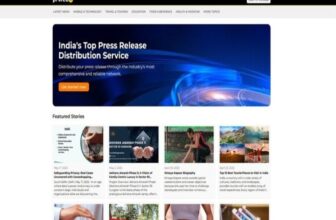
In today’s fast-paced digital world, every online business, whether it’s a small startup or a large e-commerce store, needs a well-crafted sales funnel to succeed. But what is a sales funnel, and why is it essential for your online business? In this article, we’ll dive deep into the concept of a sales funnel, why it’s crucial, and how it can drive more sales, improve customer experience, and streamline your business operations.
What is a Sales Funnel?
A sales funnel is the journey a potential customer takes from the moment they first encounter your brand to the point where they make a purchase (and beyond). The funnel metaphor represents how prospects move from a wide pool of potential leads at the top, to a narrow group of paying customers at the bottom.
The typical sales funnel consists of several stages:
-
Awareness: This is the stage where potential customers first become aware of your brand, product, or service. Awareness can be generated through blog posts, social media, paid ads, SEO, or other marketing channels.
-
Interest: Once your potential customer knows about you, the next stage is to capture their interest. This can be done by providing valuable content, solving their problems, or introducing them to your brand’s unique offerings.
-
Consideration: At this point, prospects are considering your product or service as a solution to their problem. They might be comparing it with competitors. Your role is to nurture this lead by providing more detailed information, testimonials, case studies, or offering incentives.
-
Action: This is the point where your prospect becomes a customer. It could be a purchase, a subscription, or any other type of conversion you desire. The key here is to make the process as seamless and easy as possible.
-
Retention: After a customer makes a purchase, it doesn’t end there. A strong sales funnel continues to engage customers with upsells, cross-sells, newsletters, loyalty programs, or feedback requests to keep them coming back.
Now that you understand the basic structure of a sales funnel, let’s explore why it’s critical for the success of your online business.
Why You Need a Sales Funnel
- Better Lead Nurturing and Conversion Rates
A sales funnel allows you to nurture leads systematically. At each stage, you can present relevant content and offers that guide your leads toward making a purchase. Without a funnel, your marketing efforts might be scattered, and prospects could get lost along the way, never converting into paying customers.
By using a funnel, you can track where your prospects are and focus your marketing efforts on moving them forward. For example, a person in the awareness stage needs educational content, while someone in the consideration stage needs more detailed product comparisons and customer reviews. Tailoring your message to where the lead is in the funnel improves the chances of conversion.
- Improved Customer Insights
A well-defined sales funnel can provide valuable insights into your audience’s behavior. By tracking how leads move through the funnel, you’ll be able to identify where you’re losing them and where they’re engaging most.
For instance, if you find that a significant portion of leads drops off during the consideration stage, you can dig deeper into what’s causing this. It could be unclear pricing, confusing product descriptions, or the lack of social proof. These insights will allow you to tweak your sales process to improve conversions.
- Automation and Scalability
One of the best features of a sales funnel is that it can be automated. Through email marketing, retargeting ads, and other tools, you can automatically send the right message to the right person at the right time.
For example, once someone signs up for your email list, you can automatically start sending them a series of emails that move them from awareness to consideration, nurturing them until they’re ready to make a purchase. As your business grows, automation allows you to scale this process without needing to hire additional salespeople. You can generate revenue while reducing manual effort.
- Optimizing Customer Experience
A well-structured sales funnel enhances your customers’ experience. By addressing their pain points at each stage of their journey, you create a more personalized, helpful experience that builds trust and rapport. The clearer and more relevant the communication is, the more likely prospects are to continue down the funnel.
For example, if a person is on your website but hasn’t made a purchase yet, you can retarget them with specific ads that feature products they’ve viewed. If a lead signs up for a free webinar, you can send them follow-up emails offering them a discount or related products. This level of personalization keeps the user engaged and moves them closer to conversion.
- Building Trust and Credibility
People generally don’t buy from brands they don’t trust. Sales funnels build trust in several ways. At the awareness stage, your content and ads introduce you to potential customers. In the interest and consideration stages, you can provide value, such as useful blog posts, guides, case studies, or testimonials that showcase your authority in your industry.
The more you can educate and nurture your leads, the more they’ll trust your brand. And when they trust you, they’re more likely to make a purchase. Over time, this trust and credibility translate into higher conversion rates and customer loyalty.
- Increased Revenue through Upselling and Cross-Selling
A sales funnel doesn’t just stop after the initial sale. By integrating upsells and cross-sells into your funnel, you can increase the lifetime value of your customers. Once a customer has made a purchase, you can offer them additional products, upgrades, or complementary items.
For example, after someone buys a product, you can send them an email offering an upgrade or a related product at a discounted price. Alternatively, you can use your post-purchase emails to offer a special deal or invite them to join a loyalty program.
- Data-Driven Decisions and Continuous Improvement
A crucial part of any sales funnel is tracking performance. Tools like Google Analytics, email marketing software, and CRM systems help you measure how well your funnel is performing at each stage. With this data, you can analyze metrics like click-through rates, conversion rates, and customer retention rates.
This allows you to continuously improve and optimize your sales funnel. For example, if you find that your landing page is performing poorly, you can experiment with new designs or copy until you find what resonates best with your audience. Data-driven decision-making leads to more efficient marketing and higher ROI.
- Cost-Effective Marketing
Without a sales funnel, your marketing efforts might be more of a “spray and pray” approach—throwing ads, content, and promotions at a wide audience and hoping something sticks. This can lead to wasted ad spend and low conversion rates.
A sales funnel allows you to target specific segments of your audience at the right time with the right message. This makes your marketing much more effective and cost-efficient. You can also reduce your cost per acquisition (CPA) by identifying and targeting your most engaged leads.
How to Build a Sales Funnel for Your Online Business
Now that you understand why you need a sales funnel, here’s a high-level overview of how to create one for your online business:
-
Define Your Audience: Understand who your ideal customers are, what they need, and how they make buying decisions. Tailor your funnel to meet their specific needs.
-
Create Valuable Content: Provide helpful, engaging content that educates and attracts your target audience at every stage of the funnel. Blog posts, videos, social media content, and lead magnets are great ways to engage.
-
Use Lead Magnets: Offer something of value for free (e.g., an eBook, webinar, or free trial) to capture email addresses and start nurturing relationships with potential customers.
-
Segment Your Audience: Use email automation to segment your leads based on their behavior and interests. This allows you to send personalized messages that speak directly to their needs.
-
Optimize the Funnel: Use A/B testing and analytics to continuously improve each stage of the funnel, from landing pages to emails to checkout processes.
-
Focus on Retention: Don’t forget about existing customers. Build a post-purchase journey that keeps customers engaged, turning them into repeat buyers and brand advocates.
Final Thoughts
In the digital age, a sales funnel is an essential tool for any online business. It provides a structured process for turning leads into loyal customers, all while delivering a personalized experience that meets their needs at every stage of their buying journey. A well-optimized sales funnel can increase your conversions, boost revenue, and ultimately lead to long-term business success.
By implementing a sales funnel strategy, you can focus on what matters most: providing value to your customers, growing your business, and achieving your goals. Don’t leave your online business’s success to chance—build a sales funnel that converts.







